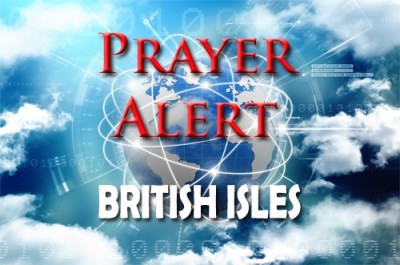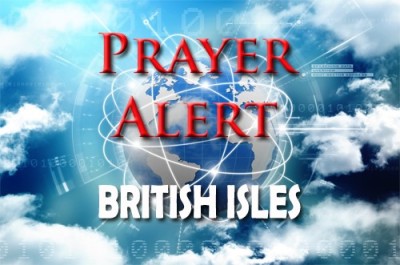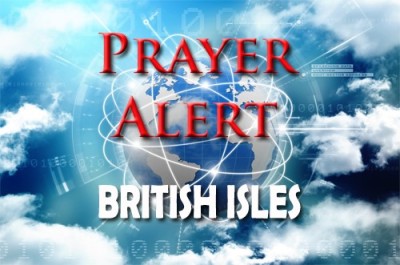The Royal Navy’s flagship, HMS Prince of Wales, has set sail from Portsmouth for an eight-month mission to the Far East as part of Operation Highmast, a major multinational military deployment. Leading a strike group composed of British, Canadian, and Norwegian warships, the carrier will demonstrate the UK's naval strength, support global trade routes, and affirm alliances in the Indo-Pacific region. While the Ministry of Defence has not confirmed whether the fleet will pass through the contested Taiwan Strait, the mission comes amid rising tensions with China over Taiwan and territorial claims in the South China Sea. Commodore James Blackmore affirmed that the task force is prepared for all eventualities and seeks to deter threats through presence and readiness. Families gathered to bid farewell to the 2,500 service members on board. The deployment also serves diplomatic, economic, and symbolic purposes: supporting NATO, promoting UK exports, and showcasing national defence capabilities. This show of force, blending strategy with solidarity, reflects the UK’s commitment to peace, stability, and the rules-based international order.
The UK is nearing a pivotal defence and trade agreement with the EU that could grant British arms companies access to a €150 billion European defence fund. In return, Keir Starmer’s government appears ready to concede on fishing rights - an issue that has stirred strong domestic opposition. The arrangement includes freezing fishing quotas and moving to a multi-year deal, rather than annual negotiations, in exchange for wider EU market access for UK defence firms. Critics argue this trade-off risks sacrificing the UK fishing industry’s post-Brexit gains. The National Federation of Fishermen’s Organisations has labelled the deal 'neocolonial’, with significant UK quotas already owned by foreign boats. Still, the economic contrast is stark: defence exports total £14.5 billion annually, compared to £1.7 billion in fish sales. The summit on 19 May is expected to formalise broader EU cooperation, including defence partnerships, dynamic alignment on food standards and emissions, and a debated youth mobility scheme. Starmer insists these moves are strategic steps toward global stability, security, and economic resilience amidst growing international challenges.
A new NHS review has revealed that an estimated 404,000 people in England suffer from Myalgic Encephalomyelitis (ME), or Chronic Fatigue Syndrome - a 62% increase from previous figures. The condition disproportionately affects middle-aged women, who are six times more likely to be diagnosed than men, and shows stark disparities across regions and ethnic groups. White individuals are nearly five times more likely to be diagnosed, and in many deprived areas, ME is underdiagnosed or entirely unrecorded. The condition, characterised by post-exertional malaise, brain fog, pain, and exhaustion, has long been misunderstood and underfunded. A national review was prompted by the 2021 death of 27-year-old Maeve Boothby O’Neill, who was left malnourished and unable to speak after years of medical neglect. Her case led to a coroner's unprecedented 'prevention of future deaths' report, demanding urgent reforms in ME care and research. Medical experts and charities are calling for improved training, diagnostic tools, and funding to address this silent health crisis. The NHS, NICE, and government-backed bodies are now reassessing care standards, research, and education for ME across the UK.
Ukraine: Trump’s one-sided peace proposal
24 Apr 2025The USA has presented Ukraine with a controversial one-page peace framework, described as Donald Trump’s ‘final offer’, which would grant significant concessions to Russia, including recognition of its occupation of Crimea and of territories which it has captured since the war began. In exchange, Ukraine would receive vague security guarantees, economic aid, and partial territorial returns. The plan also proposes that the USA would operate Ukraine’s Zaporizhzha nuclear plant and distribute its electricity output between the two countries. Sources say Kyiv views the proposal as heavily skewed in Moscow’s favour. Trump’s envoy, Steve Witkoff, drafted the deal after a lengthy meeting with Putin, who has shown interest in freezing current battle lines. However, European leaders remain skeptical of Putin’s sincerity, and critics argue that the deal sacrifices core Ukrainian interests for political expediency. Volodymyr Zelensky has drawn further harsh criticism from Trump for refusing to countenance the loss of Crimea: see The war continues, with the worst Russian attack on Kyiv in months: see
EU imposes fines on two US firms
24 Apr 2025The EU has fined Apple €500 million and Meta €200 million under the Digital Markets Act (DMA), its first enforcement action against Big Tech under the new law. Apple was penalised for limiting access to alternative apps, while Meta’s ‘consent or pay’ model for data usage was deemed to offer users inadequate choice. Both firms have reacted angrily, with Apple accusing the EU of endangering user privacy, and Meta claiming it is being unfairly targeted compared to European and Chinese companies. Though these are relatively small fines for these tech giants, the move signals the EU’s intent to hold even powerful firms accountable. Experts see the ruling as a test of sovereignty in digital regulation, but US firms argue that the EU is unfairly shaping their business models. US-EU tensions are mounting, especially after Donald Trump’s recent tariffs on European goods. The UK and other nations are launching parallel investigations into monopolistic practices.
Catholic Church: after Francis, who?
24 Apr 2025As preparations are made for Pope Francis’s funeral, there is already much speculation about who might succeed him, a risky process as supposed ‘front-runners’ are seldom elected. Also, Francis’ appointments of many new cardinals have complicated analysis. Among possible contenders are Pierbattista Pizzaballa, a Middle East expert with minimal ties to Vatican politics, and Pietro Parolin, the Vatican’s secretary of state, a seasoned diplomat known for fostering relations with China and Vietnam. From Africa, Fridolin Ambongo was a close advisor to Francis, though he is conservative on key issues. Luis Antonio Tagle of the Philippines, dubbed the ‘Asian Francis’, is pastoral and inclusive, while Matteo Zuppi of Italy has been active in peace efforts and LGBTQ+ pastoral outreach. Conservative voices back Peter Erdo of Hungary, known for his scholarly and traditionalist stance. Lastly, Anders Arborelius, Sweden’s first cardinal, advocates unity in a polarised world while defending traditional doctrine. The choice will reflect whether the Church wishes to continue Francis’ legacy or change direction.
As tributes flood in for Pope Francis, attention turns to his legacy of engaging controversial issues such as migration, climate change, and global conflict – and therefore clashing with world leaders. Notably, Francis clashed with Donald Trump over immigration, denouncing his border wall and mass deportation policies. Tensions also emerged with Argentina’s Mauricio Macri and Javier Milei; Milei even called Francis ‘evil’, but softened his tone after taking office. The Pope also criticised Brazil’s Jair Bolsonaro over Amazon deforestation and championed Indigenous rights. On Gaza, Francis condemned Israel’s military actions, suggesting possible genocide - a statement that drew harsh rebukes from Israeli officials. He also condemned the Ukraine war without naming Vladimir Putin directly, while urging dialogue. His ‘white flag’ comment upset Ukrainian leaders. Yet many world leaders - including Trump, Milei, and Zelensky - plan to attend the funeral, honouring a pontiff who never shied from challenge.
To celebrate Earth Day (22 April), environmental activists gathered at a beach in Cape Town to clean the coastline and raise awareness about plastic pollution. Organiser Lyniel Traut called for a 60% reduction in plastic production by 2040, urging corporations to both act and educate. Another activist said she wanted her children and grandchildren to grow up in a safe, pollution free, environment. Earth Day also spotlighted hidden plastic pollution from synthetic clothing. Rachael Z Miller, founder of the Rozalia Project, explained how polyester garments shed microfibres which end up in oceans, harming marine life and potentially entering the human food chain. To combat this, she has developed the Cora Ball - a laundry tool which reduces fibre shedding and captures microplastics before they reach waterways. Though helpful, such tools are just a start: the UN has urged the textile industry to shift towards a more sustainable production model to reduce its climate impact. See







